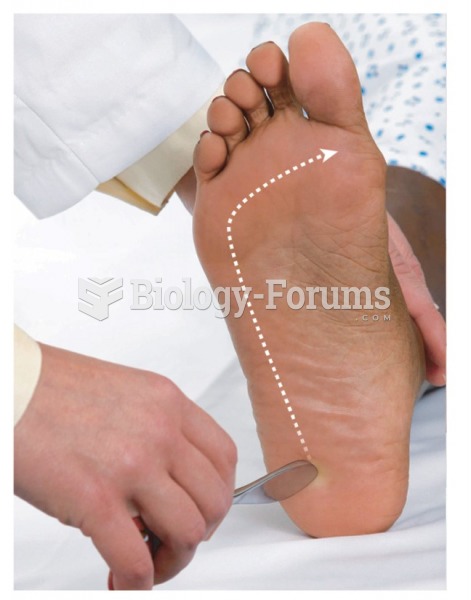|
|
|
The average adult has about 21 square feet of skin.
In 1864, the first barbiturate (barbituric acid) was synthesized.
Many people have small pouches in their colons that bulge outward through weak spots. Each pouch is called a diverticulum. About 10% of Americans older than age 40 years have diverticulosis, which, when the pouches become infected or inflamed, is called diverticulitis. The main cause of diverticular disease is a low-fiber diet.
Signs of depression include feeling sad most of the time for 2 weeks or longer; loss of interest in things normally enjoyed; lack of energy; sleep and appetite disturbances; weight changes; feelings of hopelessness, helplessness, or worthlessness; an inability to make decisions; and thoughts of death and suicide.
An identified risk factor for osteoporosis is the intake of excessive amounts of vitamin A. Dietary intake of approximately double the recommended daily amount of vitamin A, by women, has been shown to reduce bone mineral density and increase the chances for hip fractures compared with women who consumed the recommended daily amount (or less) of vitamin A.
 This slave burial service, painted by John Antrobus in 1860, reflects an inversion of power relation
This slave burial service, painted by John Antrobus in 1860, reflects an inversion of power relation
 A typical pedestal grinder with a wire wheel on the left side and a stone wheel on the right side. ...
A typical pedestal grinder with a wire wheel on the left side and a stone wheel on the right side. ...





